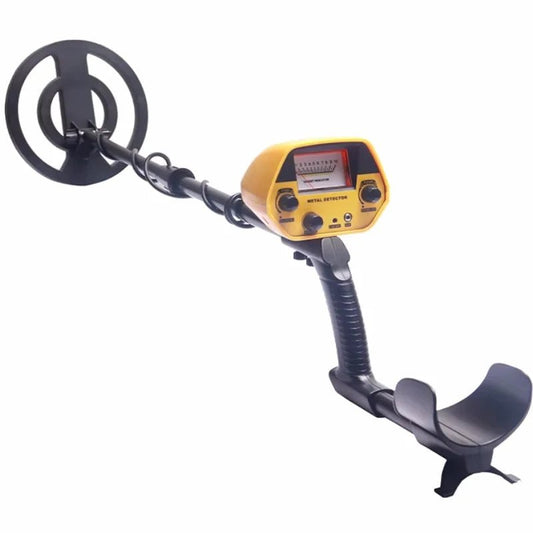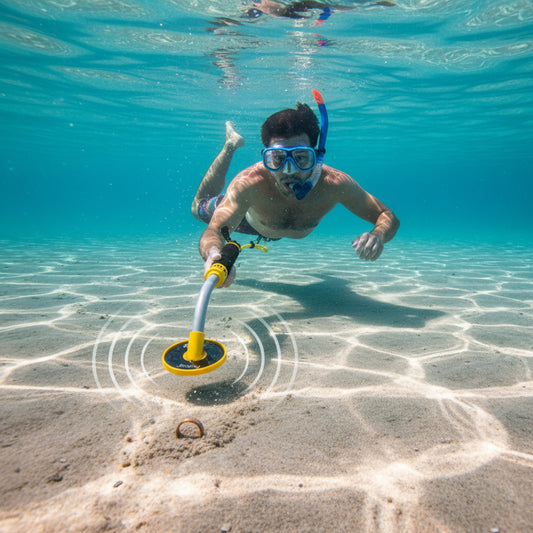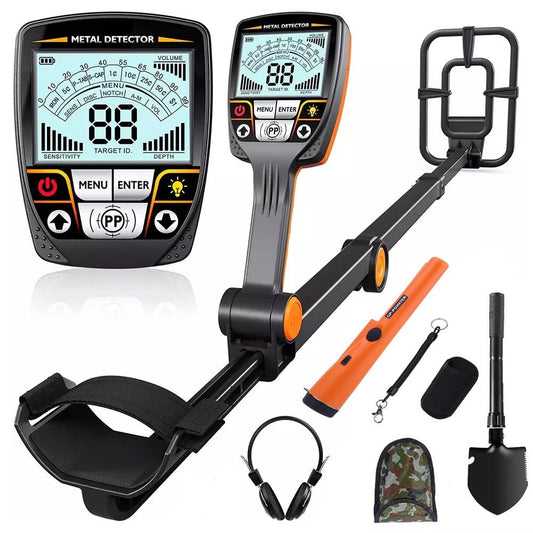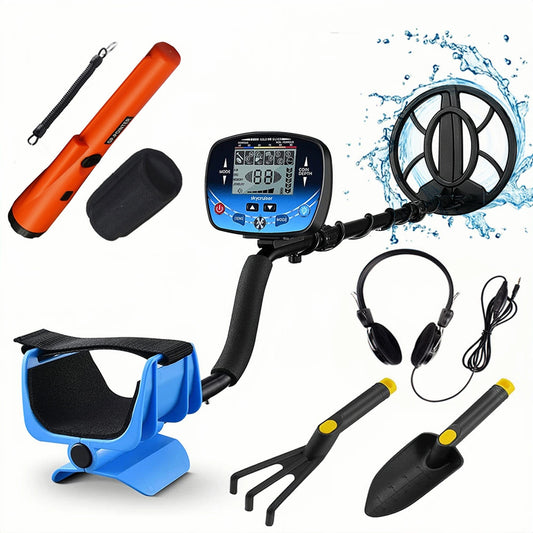
Metal Detecting in City Parks: A Comprehensive Guide to Urban Treasure Hunting
Share
Metal detecting in city parks offers a unique opportunity for treasure hunters to explore urban landscapes and uncover hidden treasures. However, before you start swinging your detector, it's crucial to understand the legal framework and best practices for this exciting hobby.
This comprehensive guide will explore everything you need to know about metal detecting in city parks, including whether it's legal, the best places to detect, and essential tips for success in 2025.
Can I Metal Detect in City Parks?
One of the most common questions enthusiasts ask is, "Can I metal detect in city parks?" The answer varies depending on local regulations and park policies.

In many cities, metal detecting is allowed in public parks, but there are often specific rules and restrictions:
-
Permits Required: Some parks require a permit or special permission for metal detecting. Learn how to get your metal detecting permit.
-
Designated Areas: Detecting might be limited to certain zones within the park.
-
Prohibited Areas: Areas like playgrounds, sports fields, or protected wildlife habitats may be off-limits.
-
Local Ordinances: Check with your city's park department or local government for specific regulations.
Is It Legal to Metal Detect in City Parks?
The legality of metal detecting in city parks depends on local laws and park rules. While some cities allow detecting with minimal restrictions, others may have strict prohibitions:
-
Public Spaces: Generally, public parks are more open to metal detecting than private properties.
-
Historical Sites: Areas with historical significance might have restrictions to protect artifacts.
-
Environmental Concerns: Parks with sensitive ecosystems may prohibit detecting to preserve wildlife habitats.
Always research local regulations and obtain necessary permissions before detecting in city parks.
Best Places to Metal Detect in City Parks

When metal detecting in city parks, focus on areas with high foot traffic or historical significance:
-
Picnic Areas: Tables and benches often yield lost coins and jewelry.
-
Walking Trails: Paths and trails can accumulate lost items over time.
-
Playgrounds: While detecting might be restricted here, nearby areas can be promising.
-
Older Parks: Parks with a long history may have more interesting finds.
- Near Water Features: Lakes, ponds, or fountains can be good spots for detecting.
Essential Equipment for Metal Detecting in City Parks

To successfully detect in urban environments, consider the following gear:
-
Lightweight Detector: Easy to maneuver in crowded spaces.
-
Small Coil: Ideal for navigating around playground equipment or benches.
-
Pinpointer: Helps locate small objects in tight spaces.
-
Digging Tools: A small trowel or probe for minimal disturbance.
-
Headphones: To focus on signals in noisy environments.
Tips for Successful Metal Detecting in City Parks
To maximize your chances of finding treasures in city parks:
-
Research Park History: Look for areas with historical significance or past events.
-
Obtain Permissions: Always get necessary permits or approvals.
-
Respect Park Rules: Follow all regulations and restrictions.
-
Be Mindful of Others: Detect during less crowded times and be considerate of park users.
-
Fill in Holes: Always restore the ground to its original state after digging.
Potential Finds in City Parks

City parks can yield a variety of interesting finds:
-
Coins and Jewelry: Lost by park visitors.
-
Historical Artifacts: Depending on the park's history.
-
Modern Lost Items: Keys, phones, and other personal belongings.
-
Memorabilia: Items left behind from events or gatherings.
Safety Considerations for Metal Detecting in City Parks
Safety should always be a top priority when detecting in urban environments:
-
Be Aware of Your Surroundings: Watch for other park users and potential hazards.
-
Use Proper Equipment: Ensure your detector is suitable for urban conditions.
-
Stay Hydrated: Bring water, especially during hot weather.
-
Follow Local Rules: Respect park regulations to avoid fines or confiscation of equipment.
Environmental Responsibility While Detecting in City Parks

As a responsible detectorist, always:
-
Remove Trash: Help clean the park by picking up any litter you find.
-
Minimize Disturbance: Fill in holes and avoid damaging vegetation.
-
Respect Wildlife: Avoid areas with sensitive habitats or protected species.
-
Report Significant Finds: If you discover items of historical significance, report them to local authorities.
The Future of Metal Detecting in City Parks
As we look towards 2025 and beyond, several factors are shaping the future of metal detecting in city parks:
-
Technological Advancements: Improved detectors with better discrimination and depth capabilities.
-
Community Engagement: Growing partnerships between detectorists and local park authorities.
-
Environmental Focus: Increased emphasis on responsible detecting practices to preserve urban ecosystems.
Conclusion: Navigating the Urban Treasure Hunting Scene
So, can you metal detect in city parks? The answer is often yes, but with important caveats. By understanding local regulations, choosing the right equipment, and practicing responsible detecting, you can enjoy this exciting hobby while contributing positively to your community.
Metal detecting in city parks offers a unique blend of urban exploration and historical discovery. Whether you're searching for lost coins, historical artifacts, or simply enjoying the outdoors, always prioritize legality, safety, and environmental responsibility.
As regulations and technologies continue to evolve, stay informed and adaptable. Join local metal detecting communities, keep up with changing laws, and always approach urban detecting with respect for both the environment and the law. Happy hunting, and may your urban adventures be both legal and rewarding!




